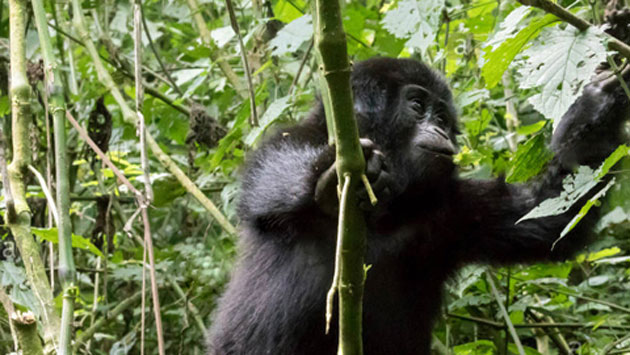Rwanda is a country of hills and rivers, making it a hidden gem for waterfalls.…

Eco-Tourism Tips for Rwanda
Rwanda has emerged as a leading destination for eco-tourism, offering visitors unique opportunities to experience its stunning landscapes and rich biodiversity while promoting sustainable practices. Here are some essential Eco-Tourism Tips for Rwanda to enhance your travel experience while minimizing your environmental impact.
1. Choose Eco-Friendly Accommodations
Opt for lodges and hotels that prioritize sustainability. Many accommodations in Rwanda, such as Bisate Lodge and One&Only Gorilla’s Nest, are designed with eco-friendly practices in mind, including using local materials, minimizing waste, and supporting conservation efforts. Staying at these places ensures that your visit contributes positively to the local economy and environment.
2. Participate in Conservation Projects
Engage with local reforestation initiatives or wildlife conservation projects during your visit. Rwanda’s government actively involves tourists in tree planting and other environmental efforts, allowing you to contribute directly to the preservation of the stunning landscapes you enjoy. This hands-on experience not only benefits the environment but also provides a deeper connection to the local culture.
3. Respect Wildlife and Natural Habitats
When participating in activities like gorilla trekking in Volcanoes National Park, adhere to guidelines set by park authorities. Limit your time observing gorillas to one hour, maintain a safe distance, and avoid disturbing their natural behaviors. Such practices are crucial for protecting these endangered species and their ecosystems.
4. Minimize Plastic Use
Rwanda has made significant strides in reducing plastic pollution by banning plastic bags. As a visitor, you can further support this initiative by bringing reusable bags, water bottles, and containers. This simple step helps maintain the cleanliness of Rwanda’s beautiful landscapes.
5. Support Local Communities
Choose tours and experiences that benefit local communities directly. Many eco-tourism ventures allocate a percentage of their profits to community development projects or offer cultural experiences that empower local residents. This not only enriches your travel experience but also fosters sustainable economic growth in the region.
6. Engage in Low-Impact Activities
Participate in low-impact tourism activities such as guided nature walks, bird watching, or cycling tours that allow you to explore Rwanda’s natural beauty without causing harm to the environment. These activities often provide unique insights into the local flora and fauna while promoting conservation awareness.
7. Learn About Sustainable Practices
Educate yourself about Rwanda’s commitment to sustainability and conservation before your trip. Understanding the country’s efforts—such as wildlife protection initiatives and community empowerment programs—will enhance your appreciation of the places you visit and encourage responsible travel behavior.
Conclusion
By following these Eco-Tourism Tips for Rwanda, you can enjoy a memorable travel experience while contributing positively to the environment and local communities. Embrace the beauty of Rwanda through sustainable practices that ensure its rich natural heritage is preserved for future generations, making your visit not only enjoyable but impactful as well.



